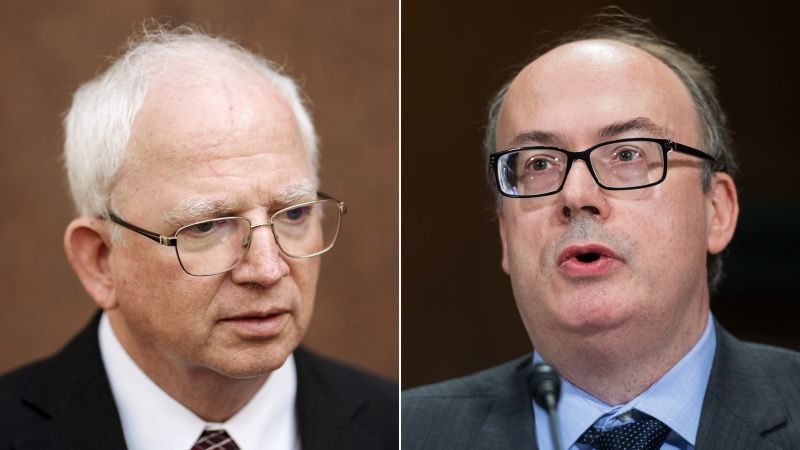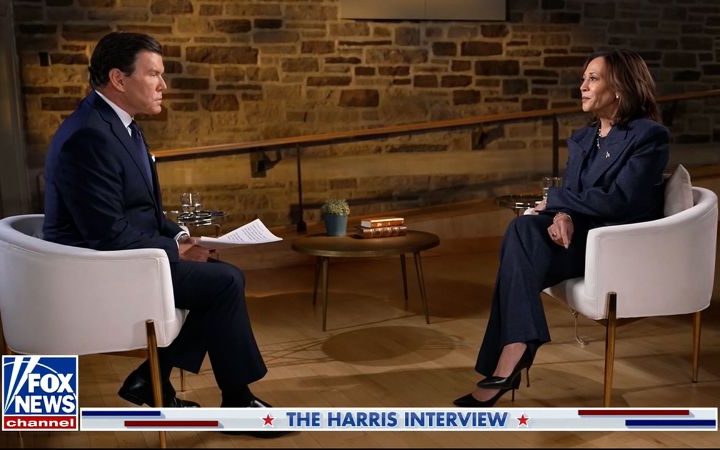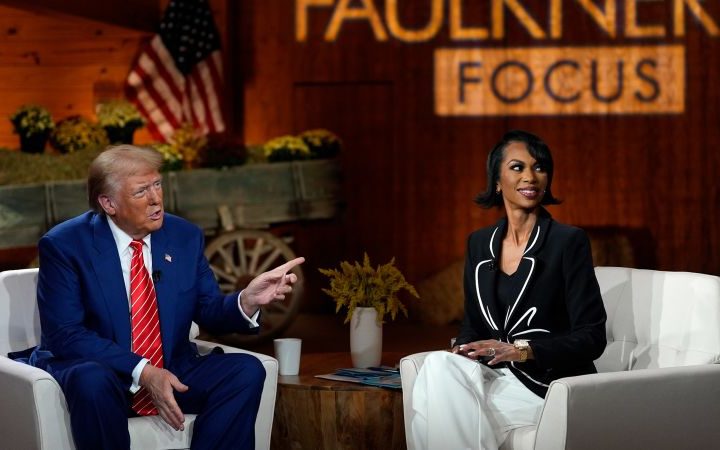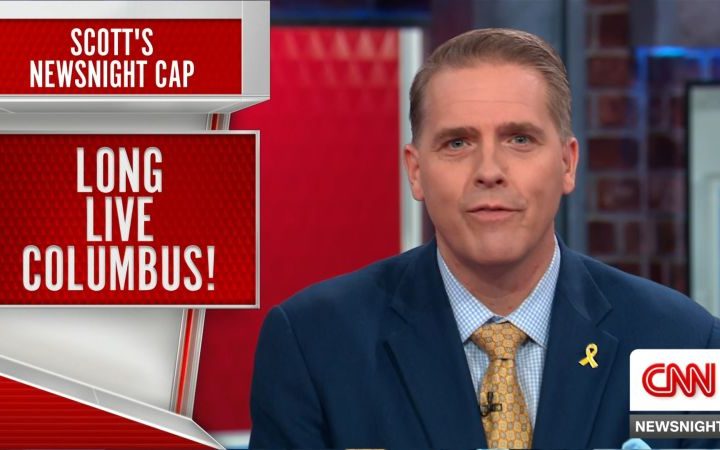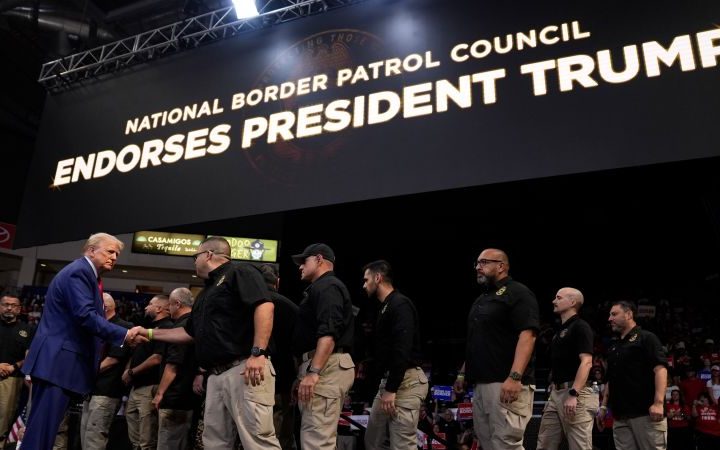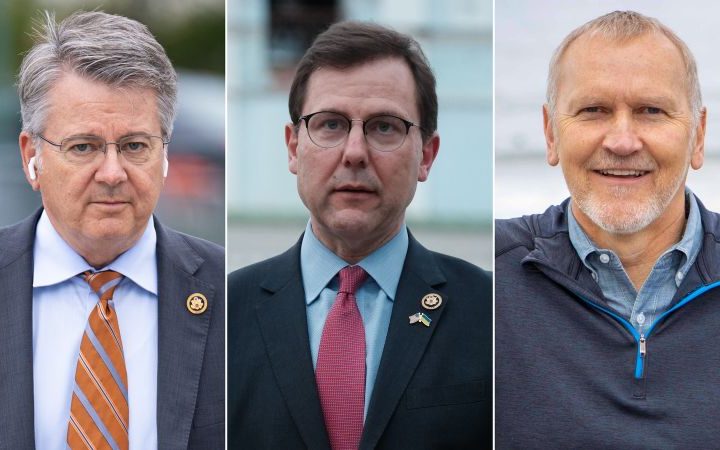Fallout for lawyers who assisted Donald Trump in his efforts to overturn the 2020 election is coming into focus this week, as one ex-lawyer for Trump will find if he may lose his law license and another attorney is in the middle of a disciplinary trial.
John Eastman, a conservative law professor, and Jeffrey Clark, the former Trump Justice Department official whom Trump nearly installed as attorney general, face major developments in their attorney discipline cases in the jurisdictions where they are barred.
The developments highlight how, even years after the 2020 election, authorities that regulate the attorneys are still looking closely at the actions of attorneys for Trump, several of whom could lose their law licenses.
In addition to Eastman and Clark, three other lawyers for Trump in 2020 — Sidney Powell, Kenneth Chesebro and Jenna Ellis —have pleaded guilty to criminal charges in Georgia that could risk their law licenses.
Another lawyer, Stefanie Lambert, recently spent the night in jail for failing to show up for a case against her in Michigan, while the prominent attorney Rudy Giuliani is in bankruptcy and suspended from practicing law.
And Lawrence Joseph, Julia Haller and Brandon Johnson, who worked in battleground states to support Trump and on frivolous court filings alleging election fraud after the last presidential election, are now facing attorney disciplinary charges in Washington, DC.
The State Bar of California is expected to issue a decision by Wednesday regarding Eastman, the architect of an effort to halt Congress’ certification of the 2020 results.
Meanwhile, Clark’s professional ethics trial began on Tuesday.
The trial is scheduled to last through the week and will focus on attempts by Clark to use the Justice Department in late 2020 and early 2021 to boost the former president’s election fraud claims.
So far in the trial, Clark’s attorney, Harry MacDougald, has highlighted how Clark was following the lead of Trump after the election. MacDougald also suggested in his opening statement that Clark believed he had reason to question election results, especially in Georgia.
But a Justice Department official who outranked Clark, then-Deputy Attorney General Richard Donoghue, testified for several hours on Tuesday about Clark being out of line.
Donoghue testified that the Justice Department checked out claims of election fraud and found no situation where federal authorities would need to pursue further investigation. Nonetheless, he recalled, Clark believed smart thermostats could have interfered with votes, and harbored other suspicions of foreign interference in the election.
Clark’s theories “were just not supported by evidence,” Donoghue said under oath on Tuesday. “I said, ‘Where are you getting this from? You haven’t been briefed on any investigation.’”
Later, Clark was given an intelligence briefing that Donoghue and others believed could help Clark understand there wasn’t widespread fraud in the election. But he was undeterred, Donoghue said, even talking to an election doubter in Georgia directly instead of authorities in the state and continuing to ignore what his superiors at the Justice Department told him.
“It was clear he was sort of conducting an investigation on his own,” Donoghue testified, under questioning from DC Bar’s Disciplinary Counsel Hamilton Fox. “Nothing … credible, or could be corroborated in any way.”
Donoghue also testified about Justice Department leadership learning that Clark met with Trump directly — an approach outside of how the White House and DOJ typically communicated — when Trump wanted the department to pursue unfounded theories of fraud.
“My first reaction was, and I said it out loud: ‘You violated the White House contacts policy,’” Donoghue testified. “I was taken aback … I said, ‘Do not violate it again.’”
Clark’s DC trial is occurring before a three-person disciplinary committee that will make findings and write a recommendation to a professional responsibility board governing professional discipline for those barred to practice law in the city.
The committee could recommend disbarment, which it has already done for Giuliani after a similar trial related to his 2020 election actions, that would need to be certified ultimately by DC’s court.
Eastman’s situation is closer to the end of the line regarding his law license. He has already sat for a long trial in California regarding his professional conduct as a lawyer for Trump. A judge there preliminarily found him culpable for ethics violations.
A decision from Judge Yvette Roland, of the attorney discipline court in the state, is expected Wednesday.
Eastman will have the opportunity to appeal if Roland decides to disbar him or otherwise punish him. The California Supreme Court will ultimately decide whether to endorse or reject the punishment Roland hands down.
Separately, Eastman and Clark are both charged criminally in Georgia in the racketeering conspiracy indictment against Trump and more than a dozen others. They have pleaded not guilty.
CNN’s Devan Cole contributed to this reporting.
Read the full article here
